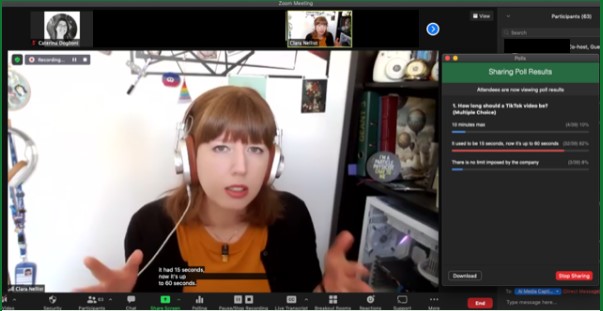iDMEu Kicks Off: Post-Event Report
The starting event for iDMEu was a kick-off meeting which took place online in the afternoons of May 10-12 2021, to allow participation from different time zones. Full agenda and videos can be found here.
The agenda of the iDMEu kick-off was planned to create the conditions for cross-talk and further collaboration: after getting to know the rest of the community, the iDMEu participants (including but not limited to the proponents) have been invited to identify possible areas of collaboration/discussion.
The first day of the kick-off featured an introduction from the organisers and from the ECFA, APPEC and NuPECC chairs. This was followed by 12 talks from different dark matter communities with a concrete set of review questions to be addressed (e.g. brief report on status, challenges in comparisons of results and data-sharing) over the course of the first and second day. The talks and discussions also included the expectations of how iDMEu could be useful to their community and proposals of common work, which were then developed in the breakout sessions on the second day.
The four topics developed in the breakout sessions included avenues for common work in Feebly Interacting Particles in accelerator and cosmology, effective data sharing in direct detection experiments, and how to exploit synergies in instrumentation between different experiments, as well as a brainstorming towards future and uncovered community topics for iDMEu.
The third day of the workshop saw a Q&A session with experimentalists and theorists: anonymous questions were sent to the iDMEu proponents, who then found an expert to answer in a brief talk. Among the questions submitted the proponents chose to cover “How do the CMB peaks tell us that there is matter that interacts gravitationally and is not baryonic?” and “Is there a strong theoretical motivation to search for dark matter lighter than WIMPs but much heavier than axions?”, and they were answered by Wayne Hu (U Chicago) and Gordan Krnjaic (FNAL).
A session of the third day was dedicated to a review of outreach activities on dark matter in different countries, and included a moderated panel discussion and a hands-on activity for the participants to enhance community-building and engagement. The hands-on activity was led by Clara Nellist, former outreach coordinator of the ATLAS collaboration, who demonstrated the use of short videos in explaining dark matter to the general public with interactive participation from the audience.

The kick-off concluded with a talk on the Dark Matter Data Center within the ORIGINS Data Science Laboratory of the Excellence Cluster ORIGINS, to kickstart a concrete iDMEu project to define standards for data sharing in direct detection data.
The outcomes of breakout sessions on the second day were also discussed in the conclusions, highlighting further concrete directions for future collaboration.